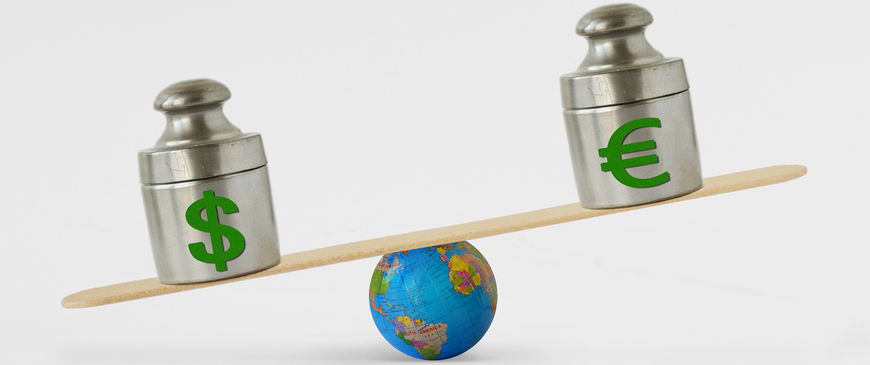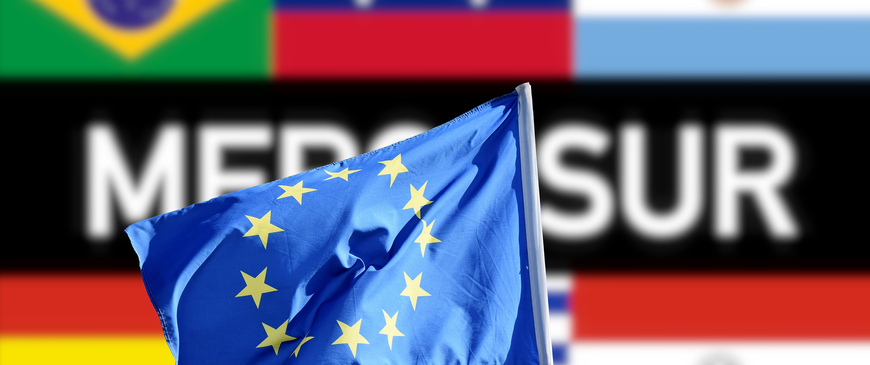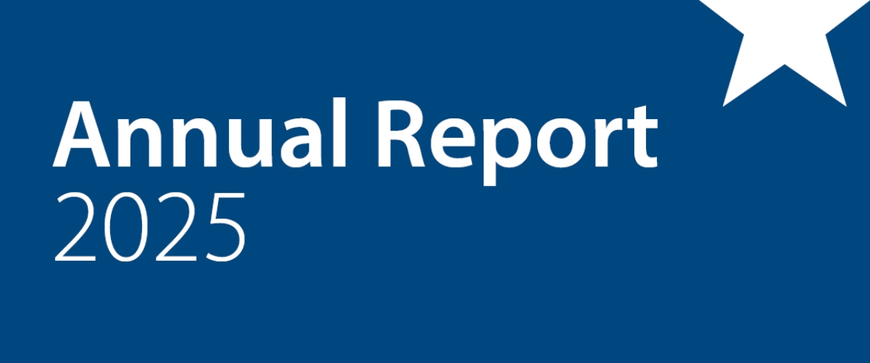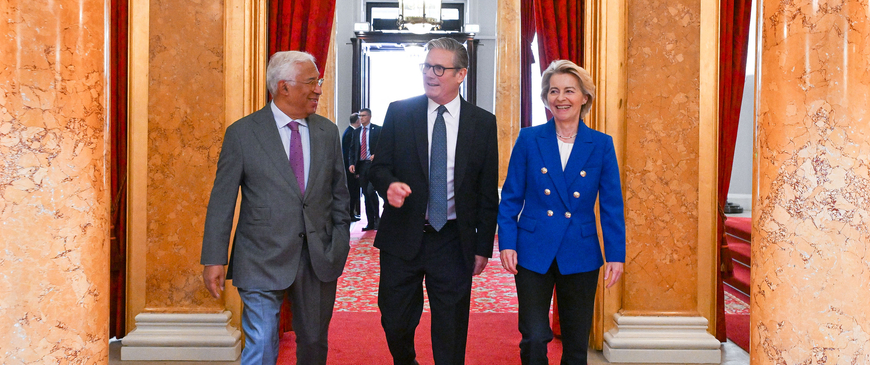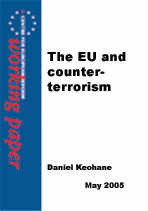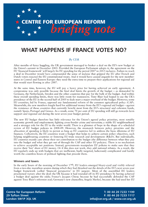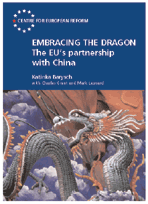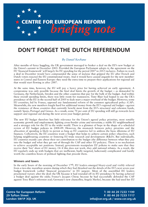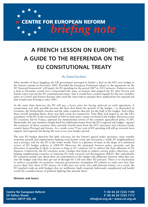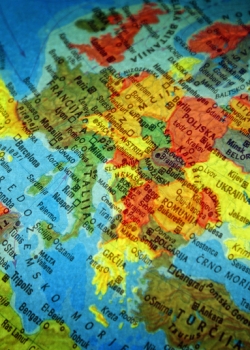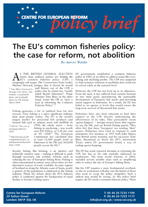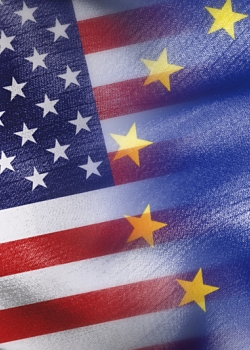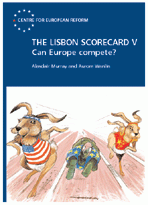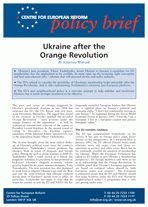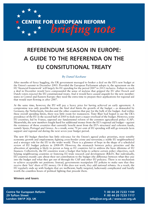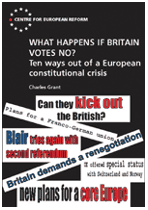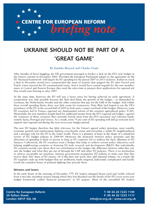Research
Issue 42 - 2005
27 May 2005
- Europe beyond the referendums, Charles Grant
- Unshackling services is the key to Europe's economic future, Digby Jones
- When the dust settles, Alasdair Murray
The EU and counter-terrorism
06 May 2005
Ever since terrorist bombs killed nearly 200 people in Madrid in March 2004, EU politicians have argued for greater European co-operation in fighting terrorism.
What happens if France votes No?
02 May 2005
In just over two weeks France will hold a referendum on the EU constitutional treaty. The outcome of the 29 May 2005 referendum remains on a knife-edge with the latest polls suggesting the country is split down the middle.
Embracing the dragon: The EU's partnership with China
02 May 2005
The EU is now China's biggest trading partner. European companies are ploughing billions of euro into the booming Chinese market. The EU offers Beijing help in areas such as fighting pollution and writing better laws.
Don't forget the Dutch referendum
02 May 2005
Three days after the French vote on the EU constitutional treaty on 29 May 2005 the Netherlands will hold its referendum. Current opinion polls predict that the Dutch will reject the treaty.
A French lesson for Europe? A guide to the referenda on the EU constitutional treaty
01 April 2005
On 29 May 2005 France will hold the second of ten national referenda on the EU constitutional treaty. The 25 EU governments have until November 2006 to ratify the treaty.
What new transatlantic institutions?
01 April 2005
Earlier this year, Gerhard Schröder caused a stir with a speech to the Munich Security Conference. When he said that NATO was no longer the forum for top level strategic discussions between Europeans and Americans he was stating the obvious.
Clumsy politics on services
01 April 2005
It may be too early to read the last rites for the EU's proposed services directive. But even the strongest supporters of the directive, which seeks to liberalise services ranging from estate agents to employment firms, must now see that the prospects for its introduction are bleak.
One year after enlargement
01 April 2005
When the EU took in ten more countries in May 2004, many people across Europe feared that an enlargement of that size would wreak havoc in the European economy and bring EU decision-making to a halt.
The EU's common fisheries policy: The case for reform, not abolition
01 April 2005
During the British general election campaign, political parties have found the EU's common fisheries policy (CFP) a temptingly soft target.
Issue 41 - 2005
25 March 2005
- What new transatlantic institutions?, Charles Grant, Mark Leonard
- Clumsy politics on services, John Monks
- One year after enlargement, Katinka Barysch
The Lisbon scorecard V: Can Europe compete?
01 March 2005
The EU is half-way through its ten year programme of economic reform, the 'Lisbon agenda'. The EU is unlikely to achieve its goal of becoming the world's most competitive and dynamic economy by 2010.
Ukraine after the Orange Revolution
04 February 2005
The pace and scope of change triggered by Ukraine's presidential elections in late 2004 has surprised the EU, the US, Russia and, not least, most Ukrainians themselves.
Referendum season in Europe: A guide to the referenda on the EU constitutional treaty
01 February 2005
Europe's referendum season is about to kick off. On 20 February 2005 Spain will hold the first of ten national referenda on the new EU constitutional treaty.
Making multilateralism work
01 February 2005
At their December 2003 summit, EU leaders nailed the concept of 'effective multilateralism' to their foreign policy mast. The governments said they were committed to upholding and improving international law; and to strengthening the United Nations (UN), by giving it the tools to do its work more effectively.
Will the French vote 'Non'
01 February 2005
President Jacques Chirac recently declared that the French referendum on the EU's constitutional treaty would take place "before the summer", and not in the second half of 2005 as previously planned.
Europe's transformative power
01 February 2005
Type the words 'Europe' and 'crisis' into the internet search engine Google, and more than four million entries come up. The media use these two words so frequently that they have become interchangeable.
But historians detect an enduring success behind the journalists' superficial sense of failure. They describe a continent that...
But historians detect an enduring success behind the journalists' superficial sense of failure. They describe a continent that...
What happens if Britain votes No?: Ten ways out of a constitutional crisis
01 February 2005
If the rest of the EU adopts the constitutional treaty but the British vote against it, the Union faces crisis and instability. Charles Grant looks at what may happen next. Would there be a second referendum, or an attempt to renegotiate the treaties?
Issue 40 - 2005
28 January 2005
- Europe's transformative power, Mark Leonard
- Making multilateralism work, Lord Hannay
- Will the French vote 'Non', Aurore Wanlin
Ukraine should not be part of a 'great game'
08 December 2004
In their reporting of the crisis in Ukraine, the world's media have focused on the pro-Yushchenko demonstrators. But while this manifestation of 'people power' has understandably grabbed the headlines, another, more sinuous tale has unfolded in the chancelleries and foreign ministries of EU capitals, Moscow and Washington.

